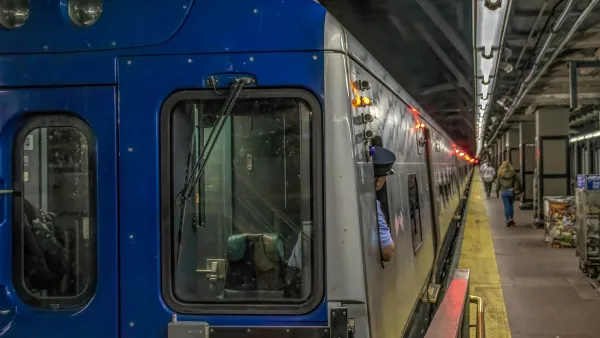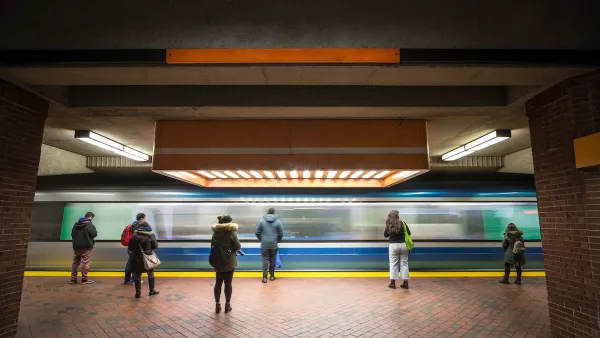An analysis of California transit employees found a high rate of burnout among operators who face unpredictable work schedules, high housing costs, and occasional violence.

A new report from UCLA's Institute for Transportation Studies highlights the causes of the persistent labor shortage in public transit at agencies across California.
As Melanie Curry explains in Streetsblog California, the report finds that while better pay is an important factor for attracting and retaining transit workers, other obstacles include “a culture of exhaustion, burnout, and physical injuries” perpetuated by “understaffing, unpredictable and complicated scheduling practices, overtime requirements, long commutes, and too-short, sometimes rare breaks.”
The report notes that part of the problem stems from “the divide between operations vs capital funding,” which makes it easier for agencies to access capital funding — for building new lines or buying equipment — than operational funding, which supports worker wages and maintenance costs.
The report’s authors suggest changes such as streamlining hiring practices, reducing split shifts, providing bathrooms and bathroom breaks for workers, and limiting fare enforcement duties for operators.
FULL STORY: To Recruit Transit Workers, More Than Higher Pay Is Needed

Analysis: Cybertruck Fatality Rate Far Exceeds That of Ford Pinto
The Tesla Cybertruck was recalled seven times last year.

National Parks Layoffs Will Cause Communities to Lose Billions
Thousands of essential park workers were laid off this week, just before the busy spring break season.

Retro-silient?: America’s First “Eco-burb,” The Woodlands Turns 50
A master-planned community north of Houston offers lessons on green infrastructure and resilient design, but falls short of its founder’s lofty affordability and walkability goals.

Test News Post 1
This is a summary

Analysis: Cybertruck Fatality Rate Far Exceeds That of Ford Pinto
The Tesla Cybertruck was recalled seven times last year.

Test News Headline 46
Test for the image on the front page.
Urban Design for Planners 1: Software Tools
This six-course series explores essential urban design concepts using open source software and equips planners with the tools they need to participate fully in the urban design process.
Planning for Universal Design
Learn the tools for implementing Universal Design in planning regulations.
EMC Planning Group, Inc.
Planetizen
Planetizen
Mpact (formerly Rail~Volution)
Great Falls Development Authority, Inc.
HUDs Office of Policy Development and Research
NYU Wagner Graduate School of Public Service




























